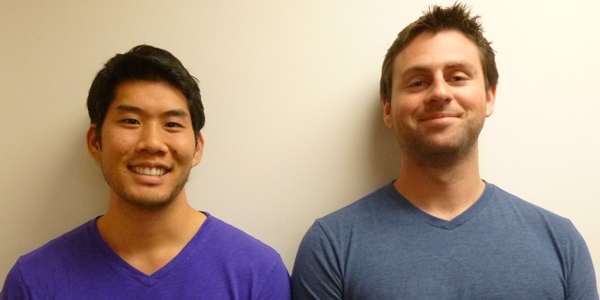How did you spend your summer? Two MARC Scholars spent their summer conducting research alongside researchers from the University of Colorado Boulder and the University of Texas Southwestern Dallas Medical Center. Read below about their experiences.
Kent Kurashima (Micro Heat Transfer)
Over the 2014 summer I was awarded the opportunity to conduct research at the University of Colorado Boulder through the Summer Multicultural Access to Research training (SMART) program. I worked in the mechanical engineering department with Dr. Ronggui Yang conducting micro heat transfer research. I worked specifically on characterizing the heat transfer properties of a thermal ground plane (TGP). A TGP is an advanced flat heat pipe used for cooling micro-electronics. During the summer, I fabricated a charging station to evacuate and also accurately charge the TGP with degassed water. The second part of this project was to construct a testing station that could create a heat flux of 1000 W/cm2. The testing system was used to place a heat flux on the TGP and determine if it was able to dissipate the heat. The project was a relative success, but further testing needs to be conducted. Living and working in Boulder was one of the best experiences in my life, and I will apply and hope to attend Boulder in the fall as a Ph.D. student.
Jeremy Mitchell (Pancreatic Cancer)
The University of Texas Southwestern Dallas Medical Center, or UT Southwestern Dallas as I learned to call the campus during my 10-week Summer Undergraduate Research Fellowship (SURF) program, was an amazing experience that bolstered my scientific understanding. As a physics major with an emphasis in biology, I was easily able to find my place in the lab. Those whom I had the pleasure of working with influenced my scientific growth and were great mentors. Before this, some of the advanced biochemistry approaches such as western blots, protein assays, and splitting an immortal cell line were above my ability until I went to work in Dr. David Mangelsdorf and Dr. Steven Kliewer’s laboratory. This experience not only helped me learn how to produce meaningful data when looking through a biochemist’s lens, but also aided me in gaining insight into why these experiments were conducted and how the data produced revealed answers to important questions. I had the opportunity to conduct meaningful research on pancreatic cancer using a variety of wet bench skills and performing quantitative analysis on findings to qualify results. Doing research with the chair of pharmacology was not only a privilege but also a pleasure. The summer program helped to hone my skills as a scientific researcher as well as introduce me to a new way of thinking about intracellular communication and its vital role in life.

